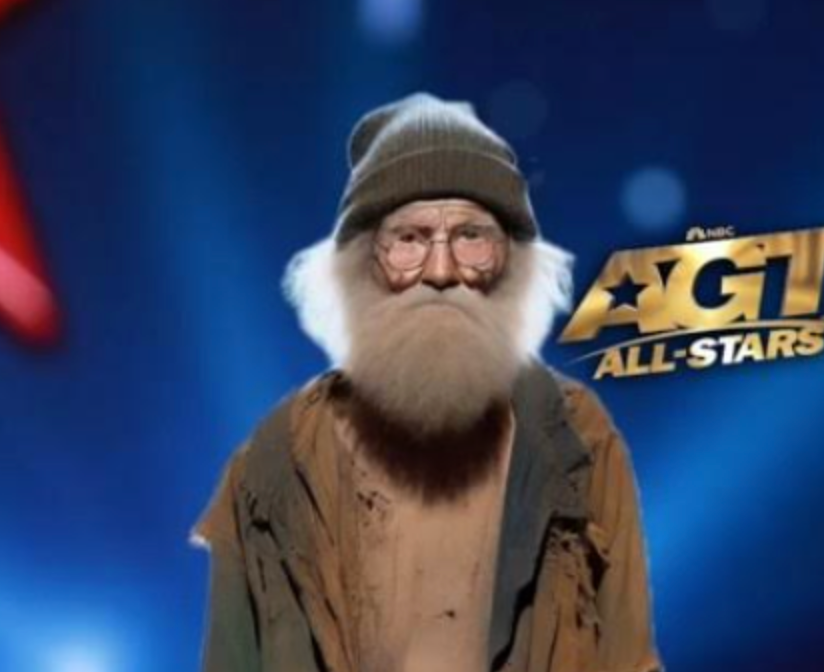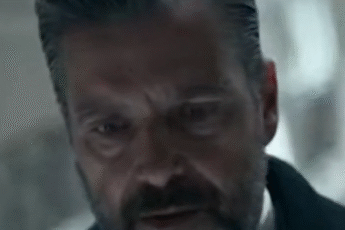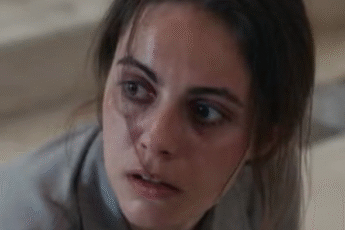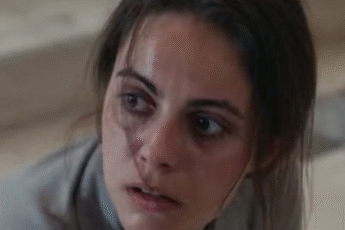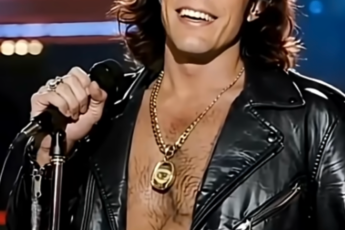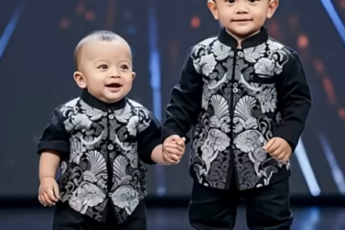The crowd buzzed with restless excitement, unaware that the most unforgettable moment of the night was about to arrive. The judges sat poised, expecting another singer, another dancer, another dreamer ready to fight for their chance at fame.
And then, he walked in.
A frail, hunched figure emerged from behind the curtains — a man draped in rags, his clothes torn and weathered, edges frayed like forgotten memories. His long white beard framed a face partially hidden beneath cracked glasses and a worn-out beanie. His boots were mismatched, his hands calloused, and his entire being radiated one undeniable truth: this was someone who had walked through storms most of us will never know.
He stopped at the center of the stage, completely still.
“Sir,” one of the judges called softly, uncertain, “what will you be performing tonight?”
The man didn’t answer.
Instead, he slowly removed his glasses, revealing pale, almost glassy eyes — the kind of eyes that carried lifetimes within them. He extended his trembling hands forward, palms open, and from that moment, the world inside the theater began to shift.
The lights dimmed to a soft amber glow, as if sunset itself had descended upon the stage. A deep, resonant hum filled the air — not from instruments, not from speakers, but from somewhere unseen, something ancient. The audience fell silent, leaning forward instinctively, caught between fear and wonder.
Then, without a word, the man reached into his coat and pulled out a small, weathered book. Its cover was torn, its pages yellowed, edges singed by time. He placed it gently on the floor and touched it with both hands.
And then… everything changed.
The book trembled. The stage beneath him cracked faintly, glowing with thin streams of golden light. Wisps of mist rose around him, curling like living spirits, while faint whispers filled the room — voices from another age, a language no one understood but somehow felt.
The man’s chest rose and fell slowly as he lifted his hands, and the whispers grew louder, spiraling upward into an otherworldly chant. Around him, shadows twisted unnaturally, stretching taller and longer until they touched the ceiling. The judges clung to their desks, their eyes wide, their breathing shallow.
And then, silence.
The book snapped shut on its own. The mist faded. The golden light vanished. The stage returned to normal, as though nothing had happened.
The man put his glasses back on, straightened his torn coat, and stood there, small and fragile once more — yet somehow transformed.
He looked up at the judges with tired, knowing eyes.
One of them finally whispered, almost afraid to break the stillness:
“Sir… what was that?”
The man smiled faintly — a slow, weary smile — and said just four quiet words:
“Something you weren’t ready for.”
Then he turned, walked offstage, and disappeared into the darkness behind the curtains.
The audience sat frozen, unable to clap, unable to breathe, caught between the ordinary and the impossible.
Because deep down, they knew they hadn’t just seen a performance.
They had seen power — raw, unspoken, and ancient.
